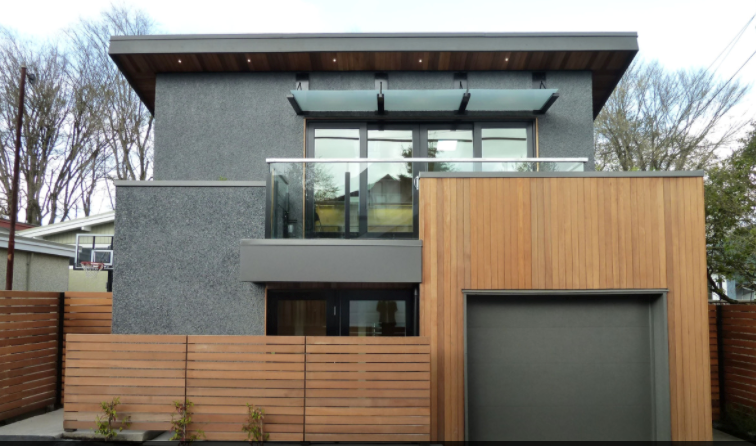Port Coquitlam is giving a break to local property owners wishing to get more out of their expensive land by building coach houses.
But one prominent Vancouver architect specializing in accessory buildings says until these tiny coach and laneway houses are as easily approved as big “mansion” houses, a double standard is being applied because these new buildings require greater scrutiny.
Calling Port Coquitlam’s decision to allow the city’s director of development services to approve coach houses, rather than council, ‘baby steps’ toward a more fair and efficient process, Bryn Davidson said “you shouldn’t have to jump through more hoops” to build these homes.
His comments come as council approved changes to how it will deal with coach houses, which became a permitted land use in the city in 2017, after a lengthy public consultation process called “Let’s Talk Housing.”
Mayor Brad West said he hoped giving staff rather than council the job of approving these buildings would “send a message” that these tiny houses are a permitted use when built according to city rules.
“I have a lot of trust in our staff to deal with the issues that come up — which inevitably do come up between neighbours — [to ensure they] are addressed appropriately,” West said.
SMALL BUT NOT CHEAP
Coach houses, called laneway houses in other jurisdictions, are small homes, about 750 square feet in size, and they are gaining interest in cities because they are considered a low-impact way to introduce density to single family neighbourhoods.
Although not inexpensive to build because they require the same costly bathroom, kitchen and heating, water and ventilation as main houses (and fewer cheaper bedrooms), coach houses have appeal for single family property owners seeking to get more use of their land, either by renting out the space or using them as living quarters for extended family members.
Port Coquitlam, which has approved 14 development permits, with 10 already built and another 10 under review, has permitted them in eligible single family lots through a streamlined Development Permit process.
However, proponents have been required to get them vetted by city council, which included a public input opportunity.
One such public input pitted a neighbour against a property owner, putting councillors in a difficult position.
Council approved the coach house at 1197 Fraserview Street, because it met city requirements, but not before hearing how a single mother of four spent a year trying to get her building approved after a fire destroyed her home.
The project was also delayed because the property owner had to provide a shadow analysis, which showed the two-storey structure would have limited impact on the neighbouring property.
MOM’S PLEA HEARD
“All of council was really struck by the previous coach house permit that we went through and the story involved with the applicant,” West said during Tuesday’s virtual meeting.
Eliminating the requirement for council to approve coach houses, and delegating the responsibility to staff will “provide for a customer friendly and efficient process,” according to a staff report.
However, the applicant will still have to post a sign and consult with the owners of adjoining properties.
The requirement means neighbours immediately adjacent to the property, who are most affected, would have their concerns addressed.
Coun. Darrell Penner said neighbour input was important while giving staff responsibility for approval could reduce the time it takes to get coach houses built.
“To reassure the public, if they have a concern about what’s going on with their neighbour … they can make their comments and they are very valid and they are taken into consideration,” said Penner.
It was also noted that coach home builders are typically average Port Coquitlam homeowners — not developers with deep pockets — and every delay adds to their costs.
NEIGHBOURHOOD DILEMMA
But should the requirement to post a sign and consult even be necessary when coach houses are a permitted use if they meet form and character requirements?
Davidson, who has designed a number of accessory buildings in Vancouver, where they are more common, said doing away with a public input opportunity is a good idea.
“There should never be a requirement for neighbourhood approval,” he said.
However, he said there should be an “outright path” that doesn’t require any neighbour notification, and there should be simple rules,” as well as a “conditional path” negotiated with a city planner that allows some relaxation for unusual sites.
Davidson blames opposition to coach houses and laneway houses as contributing to the current housing crisis.
“People have fought for years and years for any change and now we have this massive problem,” noting that the public tends to become more accepting when they feel the pinch of the housing crisis themselves.
“It’s usually when it’s the kids can’t find housing.”



